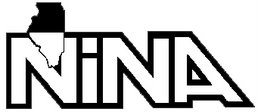NINA's incoming NINA president, Mike Cetera of the Beacon News in Aurora, has proposed a training theme for 2010. It addresses access to public information in our communities ... and challenges to that access. For instance, police and fire departments are looking to adopt new, proprietary radio technology that will not be accessible to the public via scanner radios. Does the public understand the implications of this?
What other access issues are you and your newspapers facing? Availability of public safety officials to speak with reporters? Indefinite delays in responding to FOIA requests? Governmental bodies playing fast and loose with the Illinois Open Meetings Act?
If you're experiencing challenges in getting important information to the public, we'd like to know about them. As trends emerge, NINA would like to plan training sessions around how the press can work with public officials for everyone's benefit.
So, please send me ideas and concerns - either by commenting below, or by e-mailing me. and I will compile them and get them to the NINA board for its January meeting. And if you have ideas for training on issues other than access, please send those along, too. Thanks.
Friday, December 11, 2009
Thursday, December 10, 2009
Shield Law update
From Logan Aimone at Associated Collegiate Press:
The Senate Judiciary Committee is debating the Federal Shield Law this morning. The SPJ is tweeting @spj_tweets and so is Clint Hendler @clinthendler of Columbia Journalism Review. You can also watch the live stream:
http://judiciary.senate.gov/hearings/hearing.cfm?id=4218
Sen. John Kyl of Arizona, the minority whip, is offering a slew of amendments about national security. Sen. Dianne Feinstein voted with him on at least one, according to the SPJ tweet, and she was the only Democrat to do so.
Thursday, December 3, 2009
Dart Center award
The Dart Center for Journalism & Trauma is sponsoring an award for coverage of "exemplary journalism on the impact of violence, crime, disaster and other traumatic events on individuals, families and communities. Entries should focus on the experience of victims and survivors and should contribute to public understanding of trauma-related issues."
Info and application materials are here.
The Dart Awards recognize newspaper, magazine, online, radio, television, video and multimedia journalism that goes beyond the ordinary in reporting on trauma. Entries may include breaking news, enterprise reporting, single stories, packages of coverage on a single event, cohesive series, local, regional or national television coverage, long-form documentary and online multimedia packages.
Info and application materials are here.
Subscribe to:
Comments (Atom)

